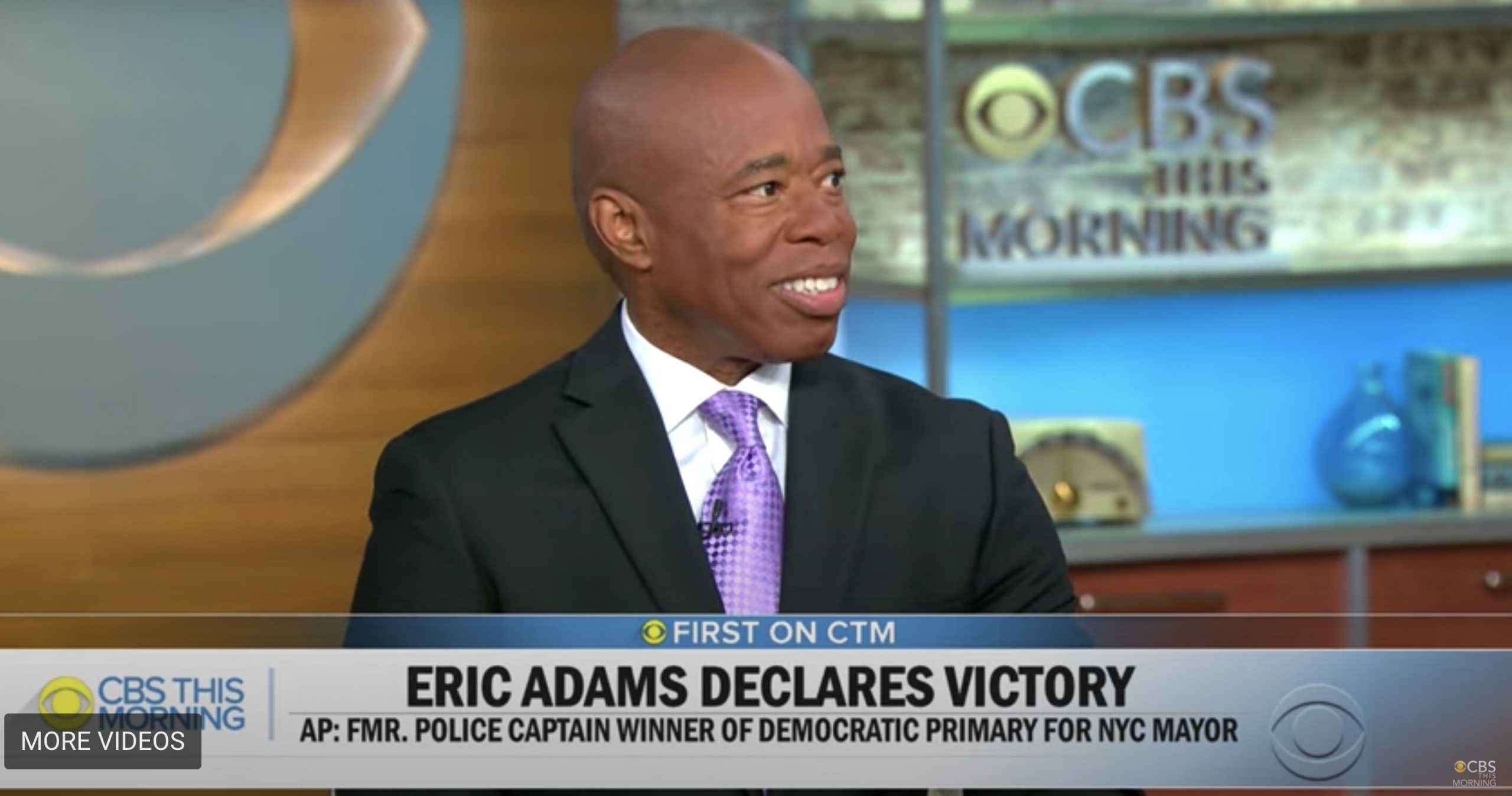After a turbulent and lengthy vote count, Eric Adams was declared the winner of the New York City Democratic mayoral primary Tuesday evening and his opponents conceded the race to him Wednesday morning.
The Associated Press called the race for Adams after mail-in ballots were added to the vote count Tuesday for the June 22 primary, which was New York’s first major race to use ranked-choice voting.
The latest tabulations showed Adams leading former city sanitation commissioner Kathryn Garcia by 8,426 votes, a little over 1 percentage point.
“While it is only by a razor-thin margin, Eric Adams will be the winner of the Democratic primary,” Garcia said at the Women’s Rights Pioneers Monument in Central Park, according to the New York Daily News.
“I spoke to Eric earlier today and congratulated him.”
Maya Wiley, who finished third, also conceded the race to Adams Wednesday.
On June 29, the New York City Board of Elections released interim results that inadvertently included 135,000 old test ballots.
Corrected tallies on June 30 showed Adams leading Garcia by 14,755 votes, according to The AP, and Wiley trailing Garcia by just 347 votes in the ranked-choice analysis.
Following the incident, Adams, Garcia and Wiley each filed lawsuits seeking the right to review the ranked-choice tally.
Adams will be the second black mayor in New York City if he wins the general election in November.
Democrats outnumber Republicans seven to one in the city, so Adams is expected to defeat Republican Curtis Sliwa in November.
“New York is going to show America how to run cities,” Adams said on “CBS This Morning” Wednesday.
“Because I know how to run this city. I know how to lead.”
[firefly_embed]
[/firefly_embed]
The moderate Democrat and former police captain campaigned on opposing the “defund the police” movement, Fox News reported.
“We’re not going to recover as a city if we turn back time and see an increase in violence, particularly gun violence,” Adams said in May.
The Democratic mayoral primary used ranked-choice voting for the first time with mixed results.
In using ranked-choice voting, voters ranked their top five of the 13 mayoral primary candidates.
If any candidate received 50 percent or more first-choice in-person votes, he or she would have automatically won.
When that did not happen, the lowest-scoring candidate was eliminated and “those ballots go for those voters’ second-choice candidate,” according to NBC News.
The process then repeats until there are only two candidates remaining. At that point, the candidate with the most votes wins.
This article appeared originally on The Western Journal.

























 Continue with Google
Continue with Google